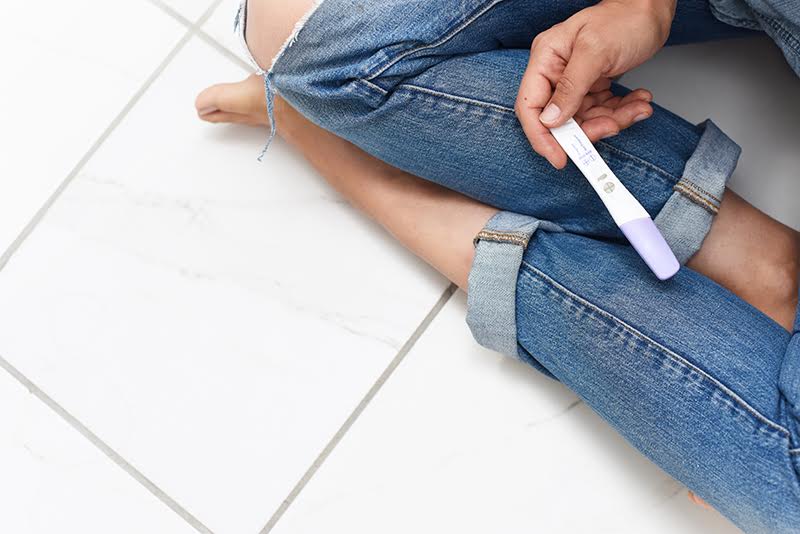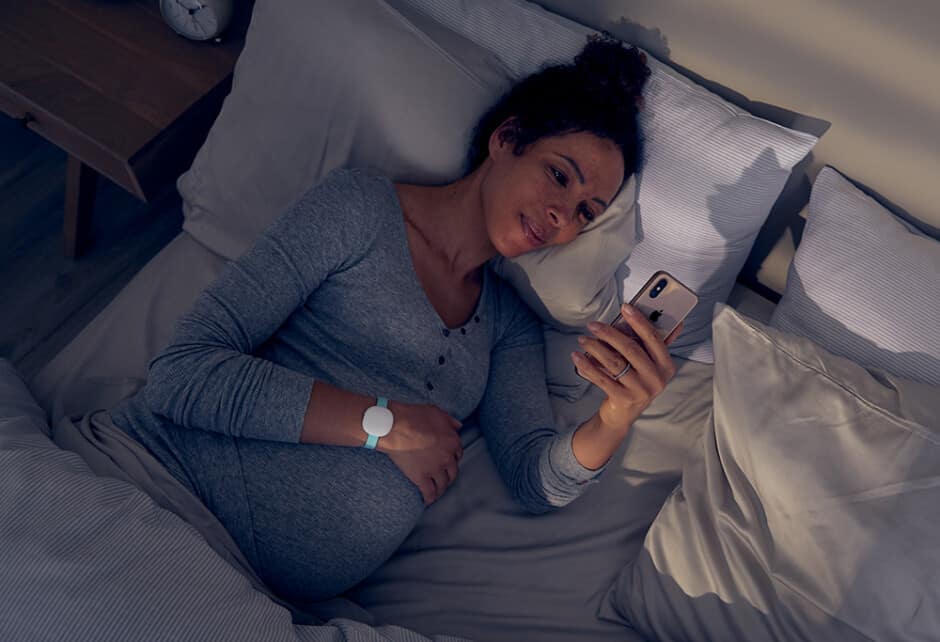
The Beginner’s Guide To Getting Knocked Up
Written by Katie Hintz-Zambrano & Jean M. Twenge
Photography by Photographed by Maria Del Rio
So many of us spend years (or decades) trying not to get pregnant. Then something changes and sex-for-procreation is the game plan. Just how can you increase your chances of getting knocked up? To find out, we tapped Jean M. Twenge, Ph.D., author of The Impatient Woman’s Guide to Getting Pregnant, for a step-by-step guide on how to get pregnant (for beginners!).
1. Quit birth control. Obviously, it’s time to throw away your once beloved birth control! A good rule of thumb is to get off of the pill three months before trying to conceive if you have been on it for less than a year, and six months prior if you have been on it for over a year. This is because it takes some time for your hormones and your cycle to return to full fertility.
2. Get a physical check-up and start pre-natal vitamins. Making sure everything is cool with you health-wise in a yearly checkup is a great habit to get into, and you can rule out any issues that might impact fertility. Also, many studies show that taking prenatal vitamins, such as folate and vitamin B6, increases one’s chances of getting pregnant quickly. Plus, omega 3 fatty acids (women trying to conceive should be taking 1,000 mg of fish oil a day) have been linked to better embryos in IVF and smarter babies overall. There is also strong evidence that prenatal vitamins lower the chance of birth defects, so begin taking them as soon as you’re thinking about getting pregnant.
3. Figure out your ovulation cycle. Getting pregnant is all about timing. Sperm can live within the vagina for 72 hours, whereas an egg lives for 12-24 hours after ovulation. Therefore, each month, a woman has a very small window in which to get pregnant. Start tracking your periods on a calendar or on an app to see how long your cycle is. On average, women typically ovulate 14 days before the start of their next period—no matter if one’s cycle is 28 days or 45 days. If you have regular periods and you can accurately predict when your next period will start, you can count back 14 days and build a little bubble around that probable ovulation window. You can look out for the natural signs of ovulation, such as having vaginal discharge with an egg white-like consistency. You can also use an ovulation predictor kit (OPK) a few days before you predict you’ll ovulate in order to nail down the exact date of ovulation. Once the OPK shows up positive, have sex very soon after. The OPK is able to detect a surge of luteinizing hormone (LH), which spikes roughly 36 hours before ovulation. Between a third and two-thirds of women under the age of 35 who are aware of their fertile time are able to conceive in their first month of trying. Want to time things to get a girl or a boy? Unfortunately the best data suggest timing is not strongly related to the baby’s sex.
4. Get your dude checked out. If you’ve been having ovulation-focused sex for over three months and still haven’t conceived, don’t freak out! Keep calm and consider convincing your partner to get a quick and easy sperm analysis. This “male factor” (or sperm issue) comprises nearly half of all fertility issues.
5. Adjust your diet for optimal fertility. Incorporate fertility-boosting foods such as vegetables, fruits, whole grains, fish, soy foods, and olive oil. Avoid trans-fats and partially hydrogenated oil, found in frosting and some baked goods. These are so bad that the FDA just outlawed them! Food companies have 3 years to comply, so for now you have to police it yourself.
6. Cut the caffeine. Non-smoking women who consume about 2-5 cups of coffee per day cut their fertility by 12 percent. Consuming caffeine has an even worse effect on male fertility, where having 5 cups of coffee a day will cut his fertility in half. An alternative to getting more energy? Try getting a full eight hours of sleep—it will enhance your mood and your health.
7. Keep having sex and check your lube. Contrary to popular belief, having sex every day doesn’t lower sperm count. So, feel free to have as much sex as you please, and enjoy it. If you use lube, however, try Pre-Seed, a sperm-safe lubricant developed specifically for couples who are trying to conceive. Pre-Seed is properly pH balanced and isotonic to mimic a woman’s fertile fluids and optimize the journey for sperm. Mimicking natural fertile fluids, it allows swimming sperm to move freely and it’s pH balanced to match fertile cervical mucus and the pH of sperm.
8. Soak up the sun! Sunlight causes your skin to generate Vitamin D, which has been linked to fertility. Sit outside for 15-30 minutes without sunscreen a few times a week in the afternoon. This will also help you sleep.
9. Stop stressing about stressing. Unless it’s severe, stress usually won’t keep you from getting pregnant. But it still doesn’t feel good. Techniques like deep breathing and meditation can help you manage it. Also, research suggests that moderate exercise improves fertility, but that too much (say, running more than 5 miles a day) might hamper fertility.
10. Testing for pregnancy. The sooner you know you’re pregnant, the sooner you can begin making healthy pregnancy choices for yourself and your baby that include diet, nutrition, and limiting your exposure to hazards. The research suggests that the best time to start testing for pregnancy is 10 days after ovulation—or 11 days if you want to be more certain. If you test earlier your result is much less likely to be accurate.
For more of Twenge’s tips, check out her book The Impatient Woman’s Guide to Getting Pregnant.
Share this story



